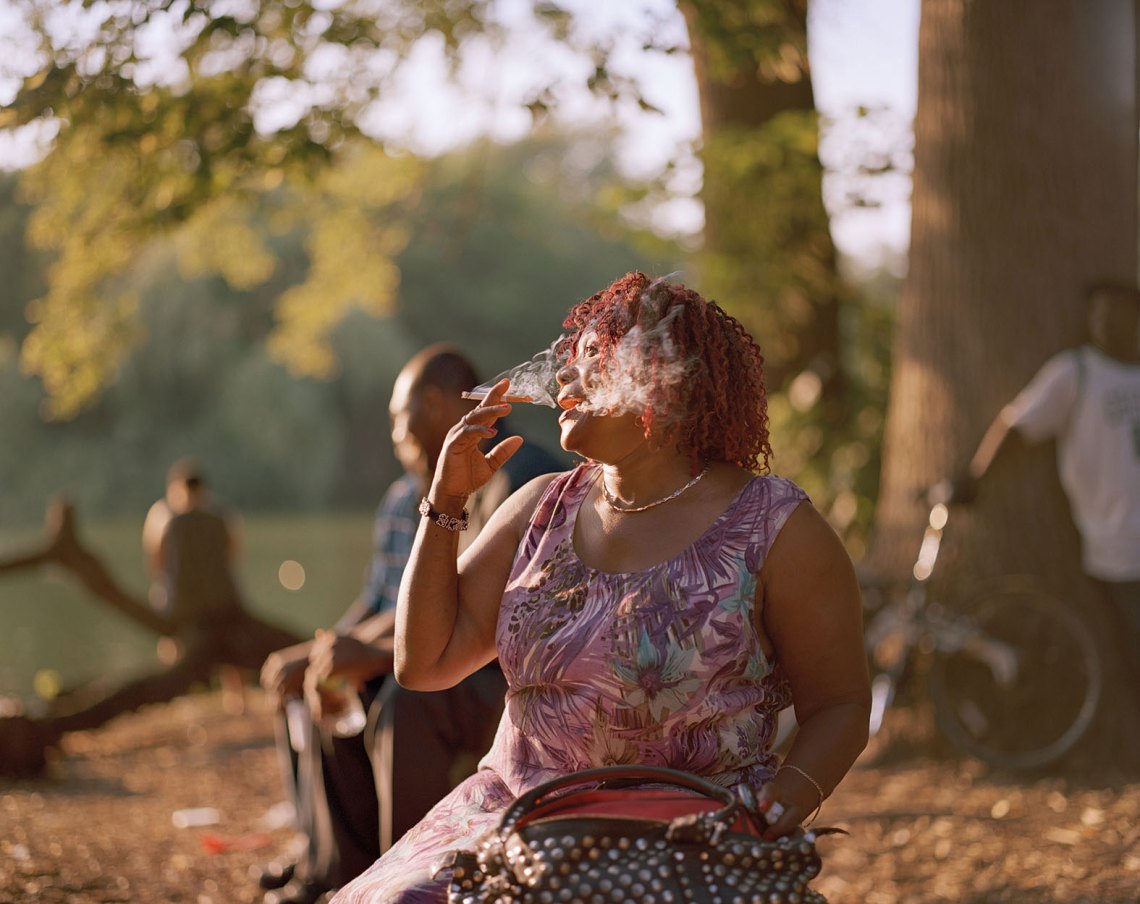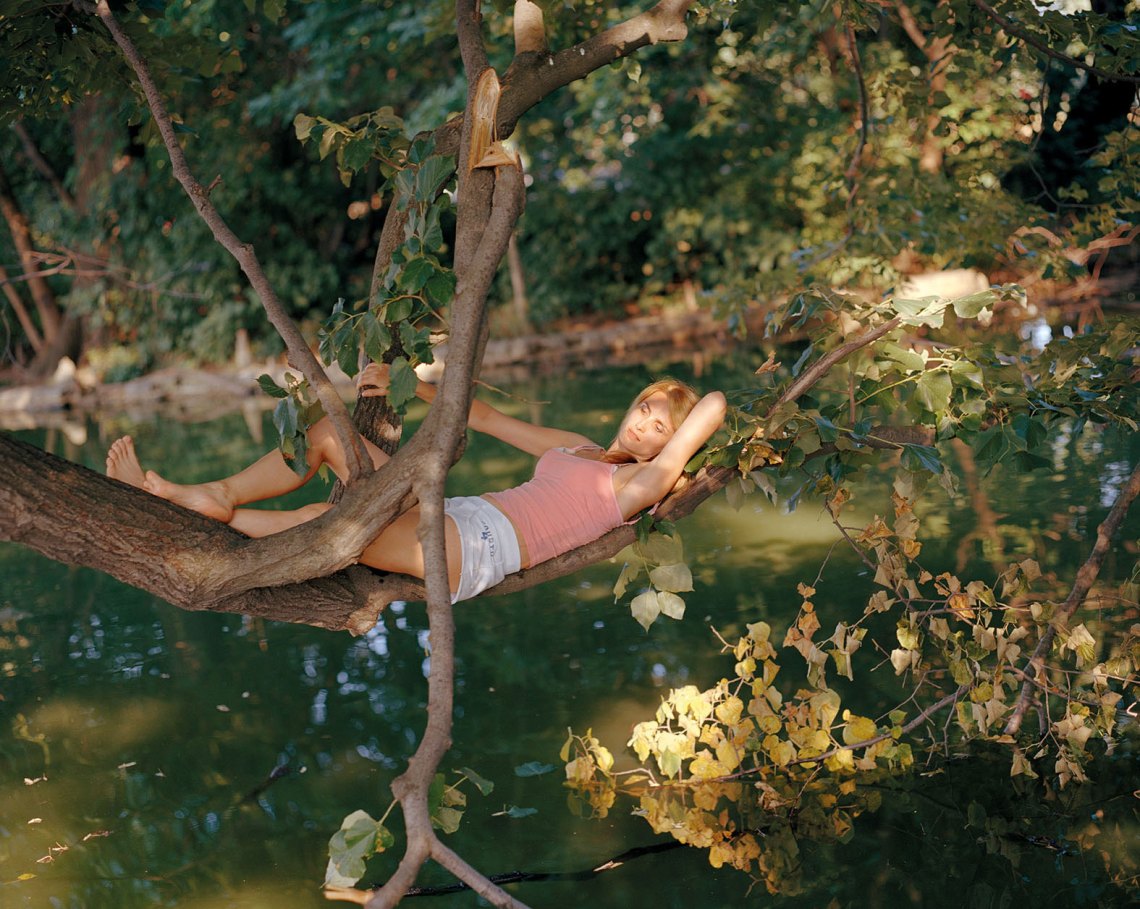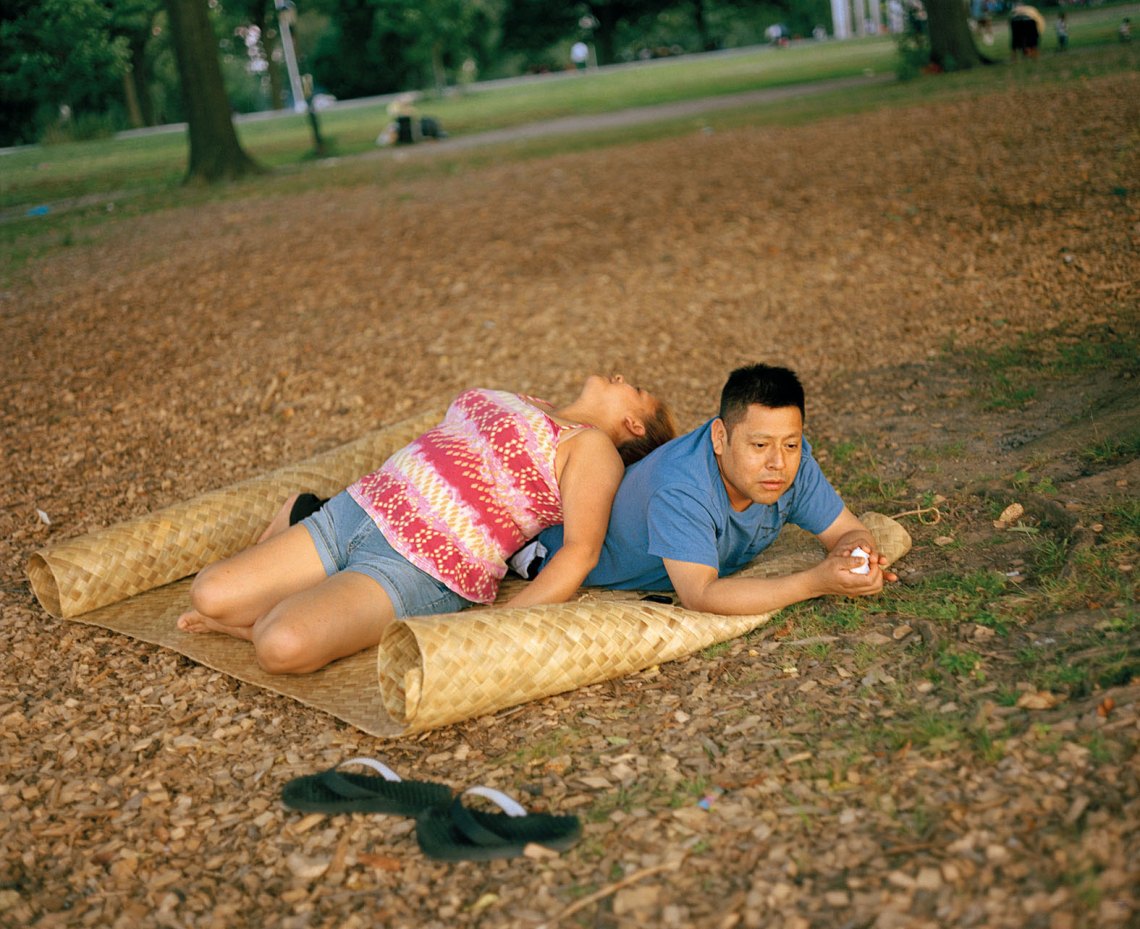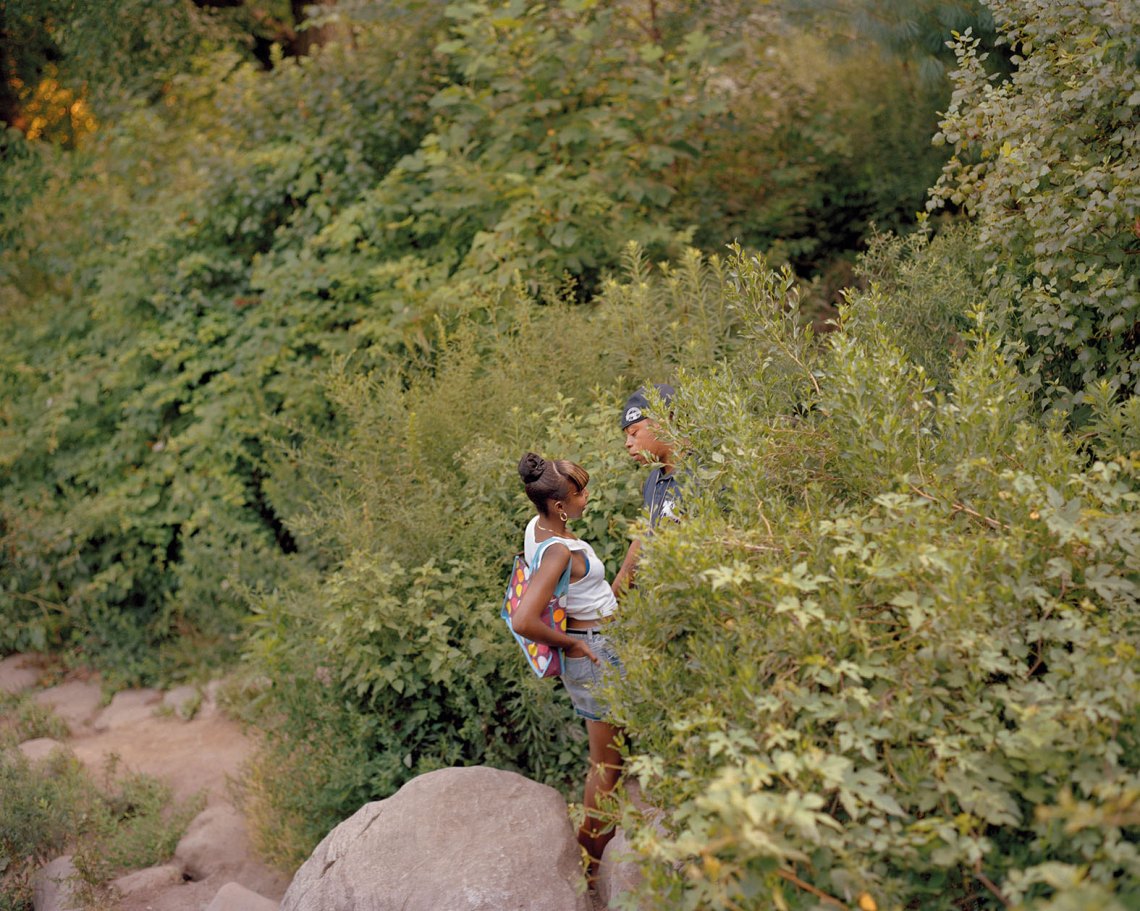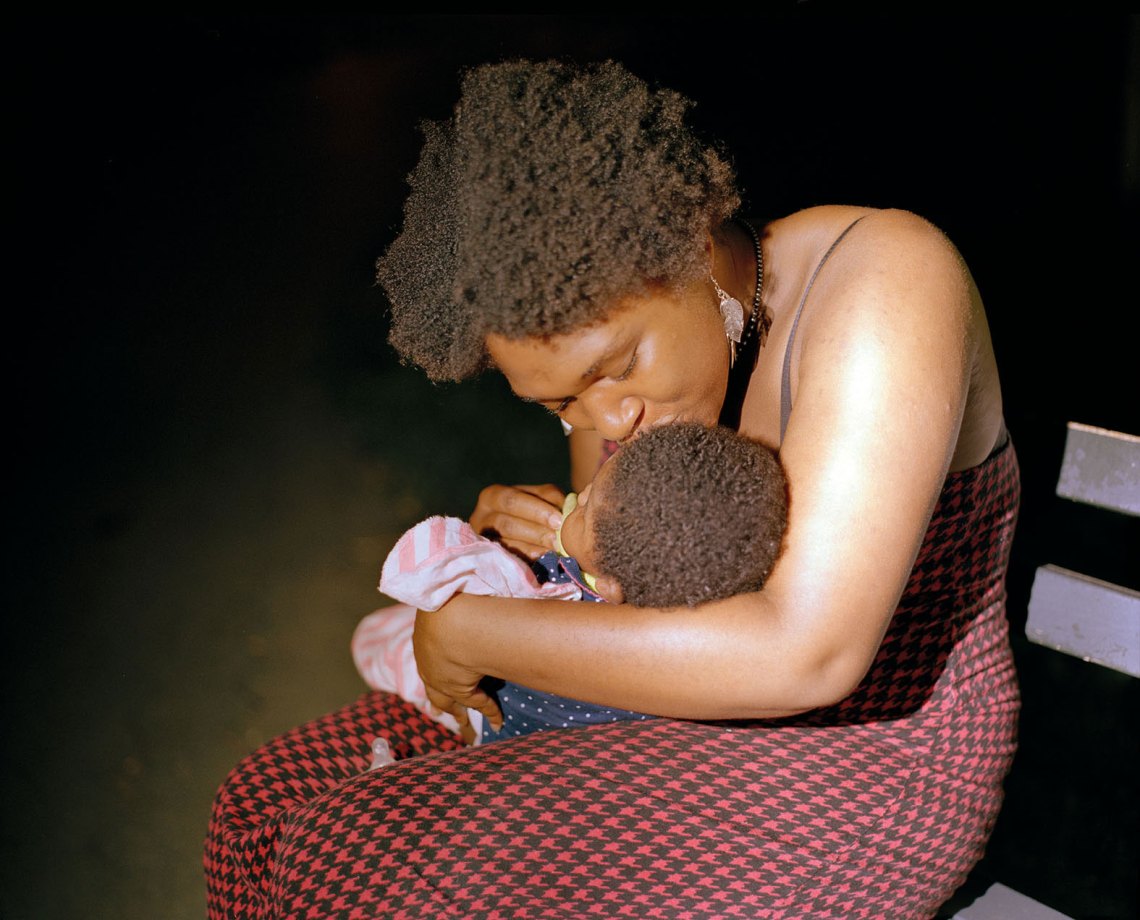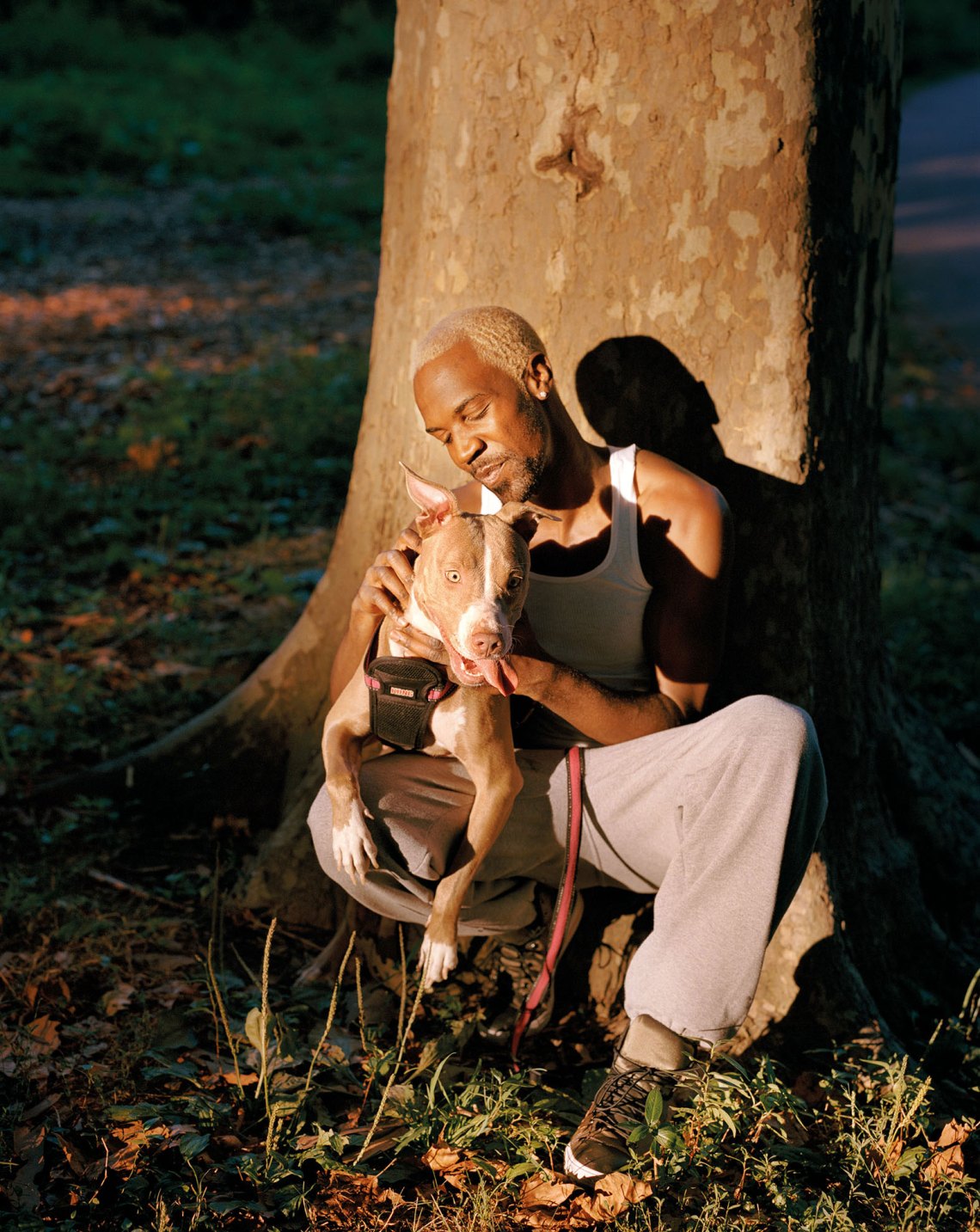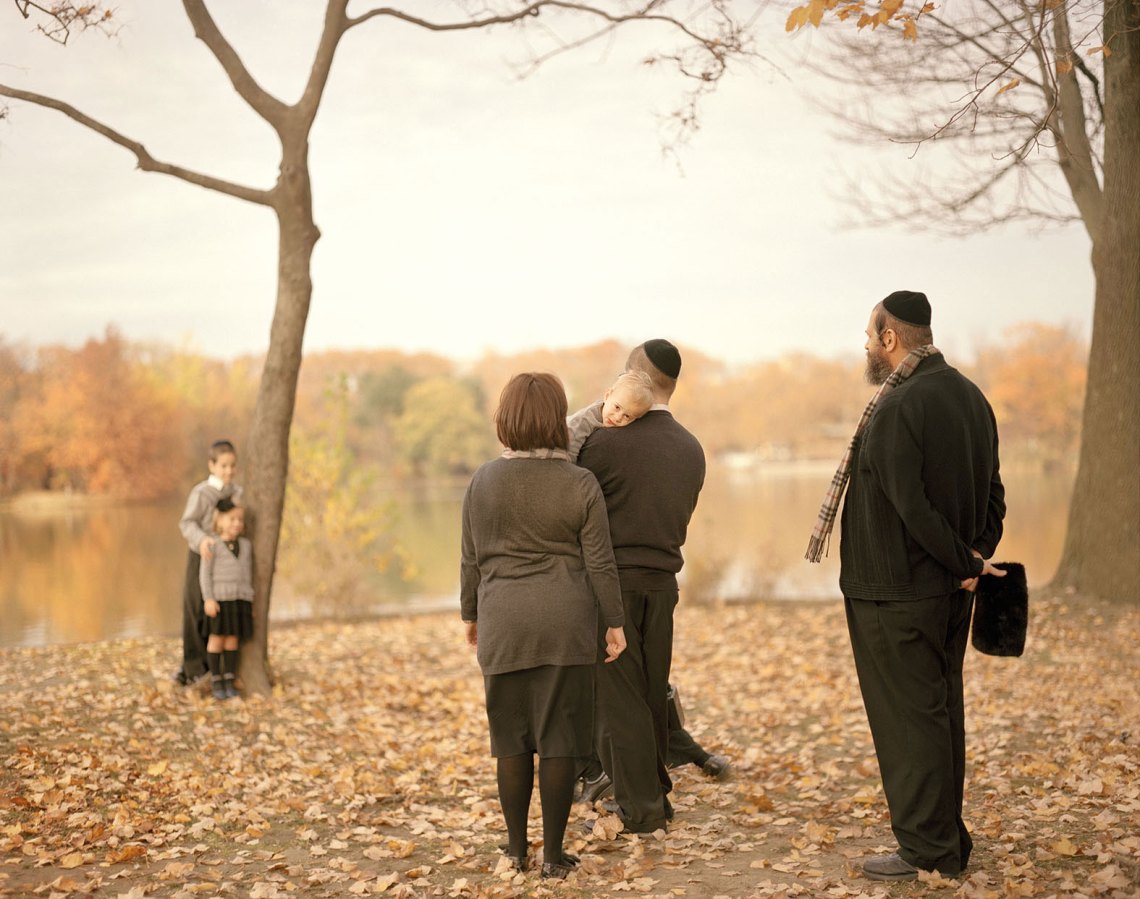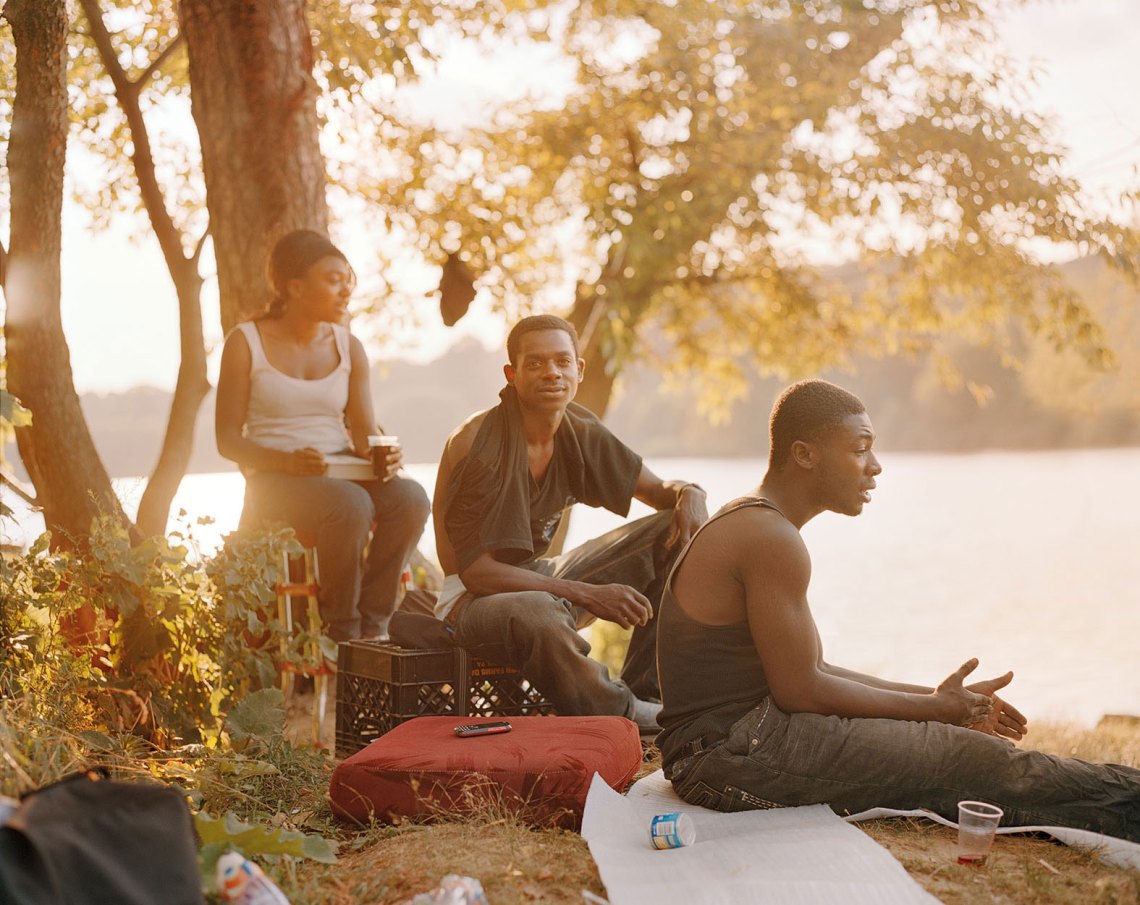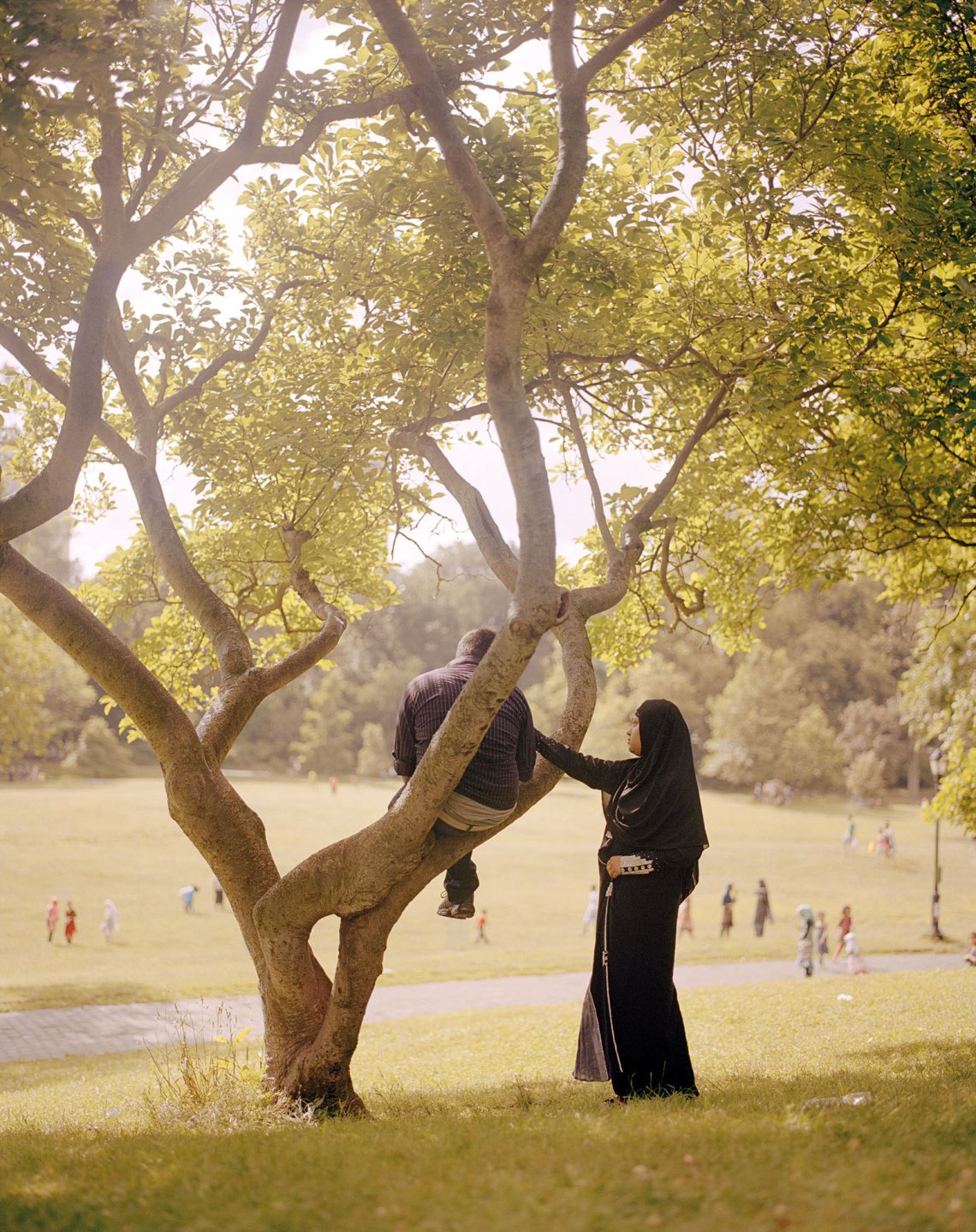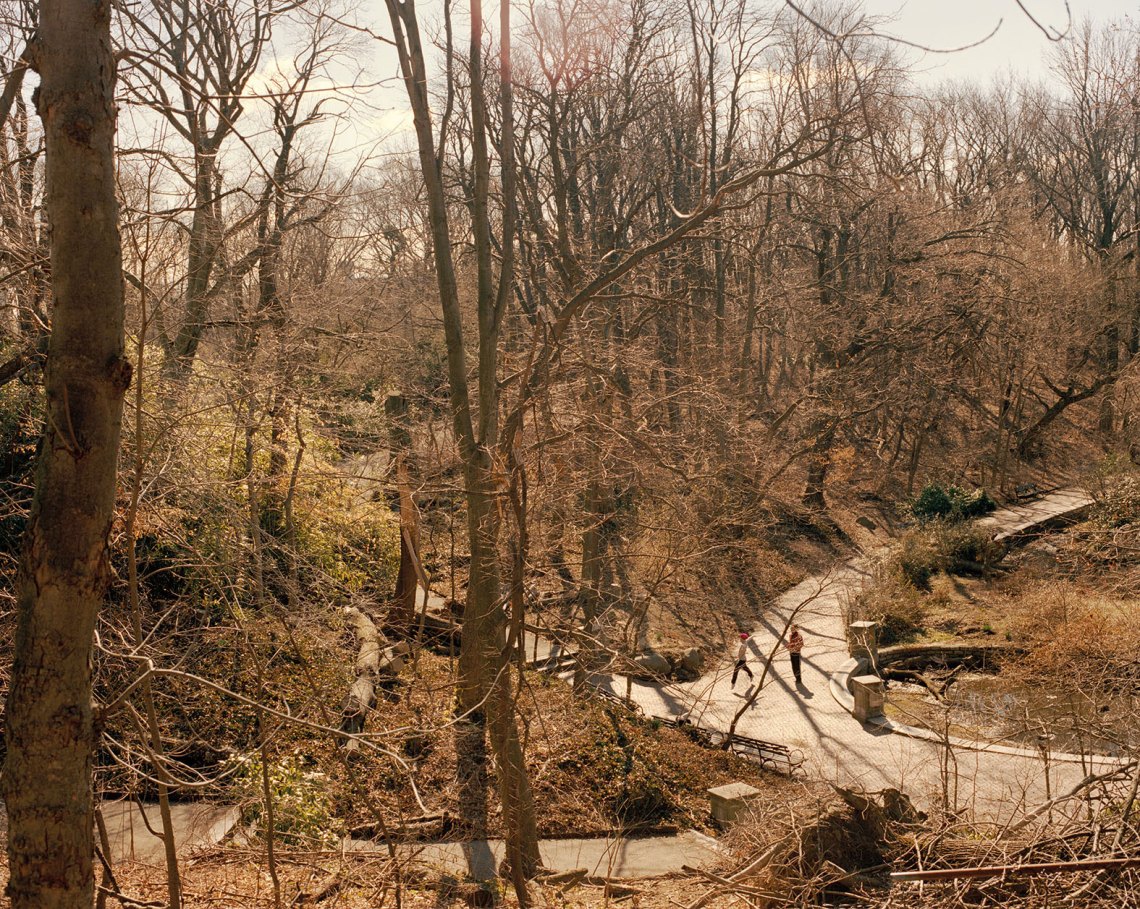This past pandemic year, for all of spring, summer, fall, and much later into the winter than temperatures really allowed, Brooklyn’s Prospect Park was packed. In those first, frightened weeks in March and April, when it still felt strange to pass a day without an outing, I would walk a mile to the park every evening after working remotely and sit on a grassy hill as twilight set in. From there I watched spring fill out the trees with buds and then leaves with the attention of a nature documentarian—my heightened sense of the fragility and persistence of life was ideal for viewing spring blooms. In time, this daily ritual came to feel not just like something—anything—to do, but truly stimulating. Standing with my roommates under the bonanza of a white magnolia tree, we would wonder aloud to one another, had spring always been like this?
In the summer, the park turned into a veritable scene: a reservoir for the overflow from every closed bar and restaurant, every stifled concert and house party and comedy show. To cross the Long Meadow was to navigate around groups of sharply dressed friends with no place to go, solitary readers and sunbathers, political meetings, baby showers, picnicking families, dates, dates, and more distanced first dates, entwined couples, older men flying kites alone. There was a lot of public drinking, and occasionally a guy walking around selling weed-laced sour straws.
But for the most part, strangers didn’t interact with one another. The pandemic park experience had the classic New York quality of simultaneous community and privacy in public: thousands of lives playing out within view of one another, marooned on separate picnic blankets. While the lack of indoor congregation options upped the numbers, the park has always been a place for people to experience solitude and tranquility in nature, together. The photographer Irina Rozovsky’s In Plain Air, a book of photos taken in Prospect Park between 2011 and 2020—concluding just before the onset of the pandemic—delights in the sense of profusion that comes from juxtaposing glimpses of these distinct but proximate worlds.
In one image, she captures the eye of the youngest member of an Orthodox Jewish family, slung over a shoulder while the rest of the group looks in the other direction, orchestrating a photo of two older sons in front of Prospect Park Lake. Another catches a couple in a moment of flirtation or negotiation, the man’s body almost totally obscured by a thicket of mugwort. In yet another, a woman in a hijab reaches out a hand to a man sitting in a magnolia tree, maybe handing him something, or steadying him. The book also features several nonhuman portraits: a seemingly unaccompanied dog, a stray cat looking straight into the camera, waterfowl, a puddle.
There are photos taken throughout the year, at various times of day, but most of the shots are suffused with a golden-hour glow: the book’s mood is the melancholy beauty of a long summer afternoon. One of the most arresting images departs from this mode: a mother on a park bench leans tenderly over her baby for a kiss; they are sitting in the dark, harshly illuminated from one side, as if by a floodlight or voyeuristic flash. Is the intimate moment posed, or did Rozovsky risk waking a sleeping baby for the perfect shot? A flash photo taken in a park at night might be expected to reveal something illicit, like Kohei Yoshiyuki’s pictures of sexual rendezvous in Tokyo’s parks in the 1970s. Rozovsky’s angelic image suggests that in her park, even in the shadows, there is nothing to hide. The other moments of tenderness are even less ambiguous: a woman reclining on top of her partner, her body thrown open toward the sky, or another lovely Madonna and Child-like composition of a man embracing his pit bull at the base of a tree, his tan and white outfit matching the dog’s fur.
Rozovsky is particularly drawn to the large lake at the park’s southern end—surely for the light it reflects and because it hosts a variety of activities (fishing, canoeing, swans gamboling), but also because, as she mentions in an interview with The Guardian, it draws a less wealthy, white crowd than the northern end of the park, which borders the hypergentrified Park Slope and Prospect Heights neighborhoods. In Rozovsky’s images, there are no flocks of spandexed cyclists whizzing by on fiberglass frames, no young professionals chatting in the off-leash morning hours over $5 coffees and fashionable no-breed dogs. Rozovsky’s short explanatory text in the book is a paean to the park as “a melting pot bubbling over in its glory,” and she rhapsodically describes a harmonious diversity that both does and does not exist: “Someone in heaven must have sketched the panorama stretching before me…. In each pocket is a different group or family, lovers, friends, different ethnic backgrounds, cultures, religions, all sharing the same place, the same lazy instant. This kaleidoscope, so serene and sublime, feels almost unreal, like a mirage.”
Advertisement
A huge, well-maintained public space like Prospect Park is a resource used by people across lines of class and race: an essential and rare civic commons (trying to find somewhere in the city to sit and eat takeout with friends this past year has made it abundantly clear how many places New Yorkers are not allowed to be without paying). However, the park is also part of the real world, and it reflects the segregation and wealth stratification that are inescapably present in Brooklyn’s gentrified geography. There are other possible images than the ones Rozovsky captures: an unhoused person sleeping in the recently refurbished tunnel in the Long Meadow; a police car lurking, day after day, near the musicians who play Afro-Caribbean beats in the Drummer’s Grove; a civil rights lawyer named David Buckel self-immolating to protest climate change in 2018.
But that would be a different book. In fact, in 2019 the photographer Joel Sternfeld devoted an entire photobook, Our Loss, to pictures of the site of Buckel’s death. But these images too are tranquil, at times even cheerful, in spite of the subject matter: a tiny patch of daffodils blooms, children do backbends and sled, one of the memorial dogwoods that were planted for Buckel breaks into pink blossoms. The park, or the regenerative power of nature, does not easily lend itself to gritty realism.
One of the strengths of In Plain Air is that it shows how much genuine wilderness there is in Prospect Park (it boasts Brooklyn’s only forest): a woman hammocked in a tree branch over water, a swan sitting sedately in a small clearing—many of the photos betray no sign of being taken anywhere in New York City. There is far less statuary in Prospect Park than in Central Park, and even the elegant fountains in the interior, which are featured on the book’s cover, are half-drained and have been allowed to become overgrown with a seemingly forgotten garden.
I’ve lived within walking distance of the park for my whole life, minus a few college years, and have visited hundreds and hundreds of times, but it can still feel vast and unexplored. What has always brought visitors (and, I suspect, what particularly allured me and others during the pandemic) is that it provides a total change of pace, an entirely different set of images and smells from the rest of urban life. To go to the park is always to travel, no matter how short the voyage there. The park that Rozovsky sees is not the only one that exists; it can be stranger, more comical, or more troubling. But she has captured one of its many capabilities—to allow for true leisure and respite—in endless permutations.

